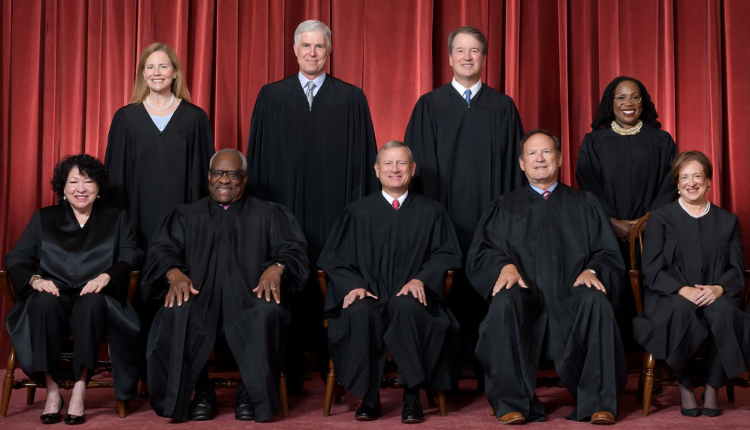Can Congress bind Supreme Court on ethics code? Alito offers opinion

U.S. Supreme Court Justice Samuel Alito: “I know this is a controversial view, but I’m willing to say it. No provision in the Constitution gives [Congress] the authority to regulate the Supreme Court—period.” Photo by Fred Schilling via the Supreme Court website.
Justice Samuel Alito doesn't think that Congress has the authority to bind the U.S. Supreme Court on ethics issues.
The Constitution—not Congress—created the Supreme Court, Alito told the Wall Street Journal.
“I know this is a controversial view, but I’m willing to say it,” he said. “No provision in the Constitution gives them the authority to regulate the Supreme Court—period.”
Alito said he nonetheless complies with disclosure laws that apply to lower-court judges and executive branch officials. And he said other justices also comply.
Alito, 73, spoke with the Wall Street Journal’s editorial page editor and appellate lawyer David B. Rivkin Jr. in an interview in early July.
Alito made his comments before the Senate Judiciary Committee advanced legislation July 20 that requires the Supreme Court to adopt an ethics code. The bill would require the high court to establish procedures for people to file complaints that would be sent to a judicial investigative panel.
The ABA House of Delegates has called on the Supreme Court to adopt a binding code of ethics for its justices that is similar to the code for other federal judges.
The Wall Street Journal article described Alito as “an important voice on the court with a distinctive interpretive method that is rooted in originalism and textualism—adherence to the text, respectively, of the Constitution and statutes.”
Alito also made these points:
- If the Supreme Court is viewed as illegitimate, “disregard of our decisions becomes more acceptable and more popular. So you can have a revival of the massive resistance that occurred in the South after Brown.”
- Historical context is important when interpreting the Constitution and statutes. “I think history often tells us what the Constitution means,” he said, “or at least it can tell us what the Constitution doesn’t mean.” In his dissent to the decision finding a right to same-sex marriage, for example, he said nobody in 1868 thought the 14th Amendment would protect the right to same-sex marriage.
- Justice Clarence Thomas gives less weight to precedent than a lot of the other justices. In the decision overturning the right to abortion, Dobbs v. Jackson Women’s Health Organization, Thomas argued that the Supreme Court should reconsider all its substantive due process precedents, including those finding a right to same-sex marriage, contraception and consensual sodomy. Alito’s majority opinion, on the other hand, distinguished those precedents. In other cases, Alito has taken an incremental approach to overruling precedent.
- Justice Neil Gorsuch is “not a consequentialist,” meaning that he is less concerned about the consequences of his decisions. In Ramos v. Louisiana, for example, the Supreme Court ruled in 2020 that a unanimous verdict is needed to convict of a defendant of a serious criminal offense. The majority opinion by Gorsuch “potentially affected many, many criminal convictions that had been obtained,” but it was not a big factor in Gorsuch’s analysis, Alito said.
- Chief Justice John Roberts “puts a high premium on consensus,” but has also “expressed a very strong tendency to protect the prerogatives of the judiciary.” Roberts dissented, for example, when the Supreme Court upheld a law allowing victims of Iran-sponsored terrorism to satisfy judgments with assets held by Iran’s central bank in New York. Roberts’ dissent said Congress had decided the case with a “bespoke” law that decides winners and losers, taking away the judiciary’s power.
- Justices Thomas and Gorsuch “don’t think that there is such a thing as the dormant commerce clause.” Alito does not agree. “The Constitution surely was meant to contain some principle that prevents the balkanization of the economy,” Alito said. “That was one of the main reasons for calling the Constitutional Convention in Philadelphia.”
Other publications that summarized the Wall Street Journal story include Bloomberg Law and Law360.
See also:
ABAJournal.com: “No summer break for Supreme Court ethics debate”
Write a letter to the editor, share a story tip or update, or report an error.



